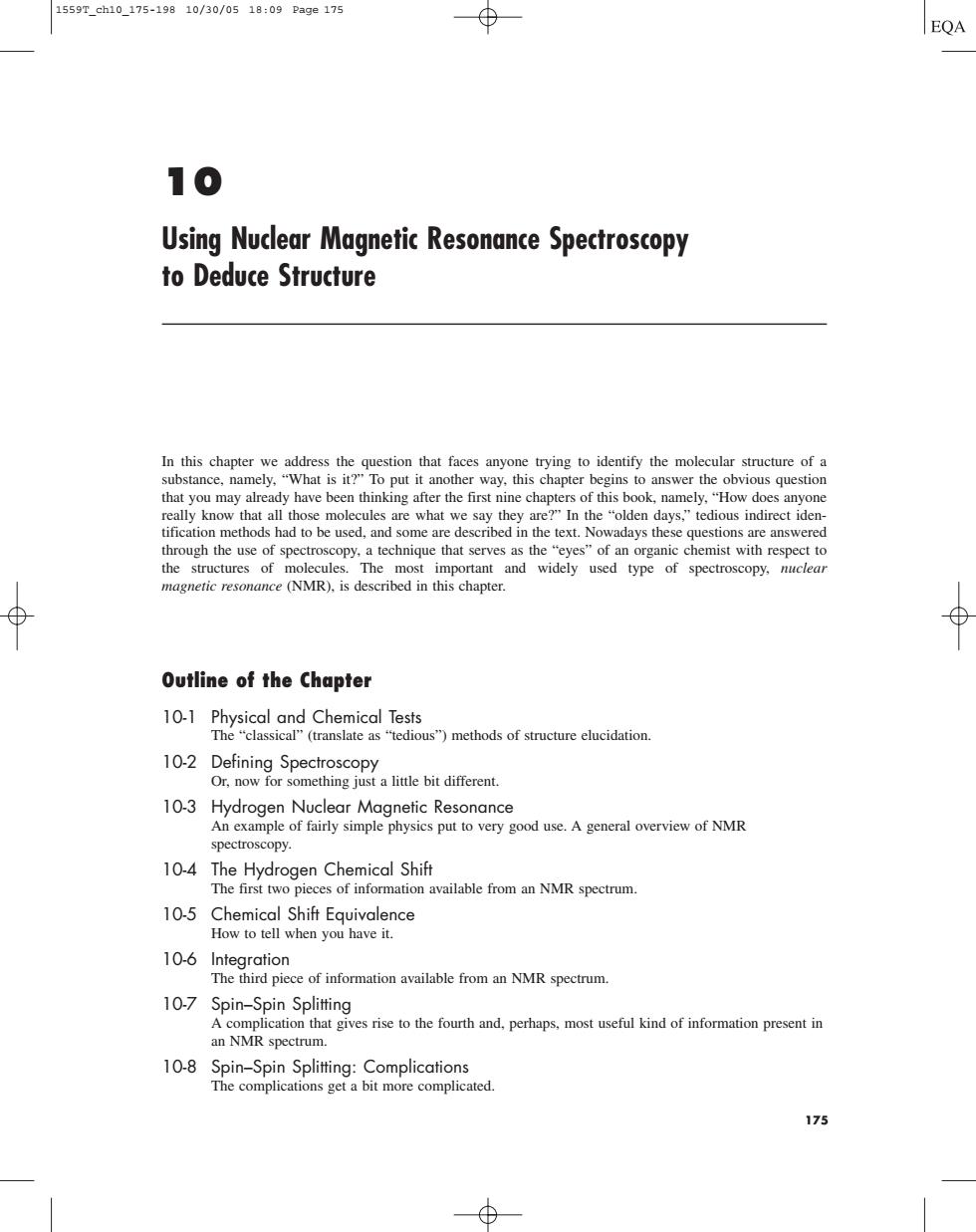正在加载图片...

1559T_ch10_175-19810/30/0518:09Pa9e175 ⊕ EQA 10 Using Nuclear Magnetic Resonance Spectroscopy to Deduce Structure In this chapter we address the question that faces anyone trying to identify the molecular structure of a stance.nan what ns to answer the bvious qucstio really know that all those molecules are what we say they are?In the"oen days."tedious indirect iden magnetic resonance (NMR).is described in this chapter. Outline of the Chapter 1o28egpaee rsomething different. 10-3 Hydrogen Nuclear Magnetic Resonance An example of fairly simple physics put to very good use.A general overview of NMR spectroscopy. 10-4 The Hydrogen Chemical Shift The first two pieces of information available from an NMR spectrum 10-5 Chemical Shift Equivalence How to tell when you have it. e of information available from an NMR spectrum 10-7 Spin-Spin Splitting on that gives rise to the fourth and,perhaps,most useful kind of information present in 10-8 Spin-Spin Splitting:Complications e complications get a bit more complicate 175 10 Using Nuclear Magnetic Resonance Spectroscopy to Deduce Structure In this chapter we address the question that faces anyone trying to identify the molecular structure of a substance, namely, “What is it?” To put it another way, this chapter begins to answer the obvious question that you may already have been thinking after the first nine chapters of this book, namely, “How does anyone really know that all those molecules are what we say they are?” In the “olden days,” tedious indirect identification methods had to be used, and some are described in the text. Nowadays these questions are answered through the use of spectroscopy, a technique that serves as the “eyes” of an organic chemist with respect to the structures of molecules. The most important and widely used type of spectroscopy, nuclear magnetic resonance (NMR), is described in this chapter. Outline of the Chapter 10-1 Physical and Chemical Tests The “classical” (translate as “tedious”) methods of structure elucidation. 10-2 Defining Spectroscopy Or, now for something just a little bit different. 10-3 Hydrogen Nuclear Magnetic Resonance An example of fairly simple physics put to very good use. A general overview of NMR spectroscopy. 10-4 The Hydrogen Chemical Shift The first two pieces of information available from an NMR spectrum. 10-5 Chemical Shift Equivalence How to tell when you have it. 10-6 Integration The third piece of information available from an NMR spectrum. 10-7 Spin–Spin Splitting A complication that gives rise to the fourth and, perhaps, most useful kind of information present in an NMR spectrum. 10-8 Spin–Spin Splitting: Complications The complications get a bit more complicated. 175 1559T_ch10_175-198 10/30/05 18:09 Page 175